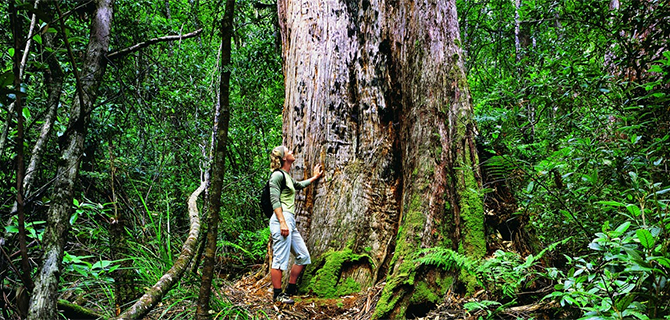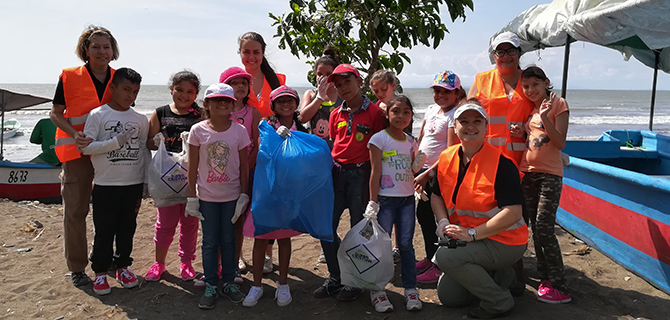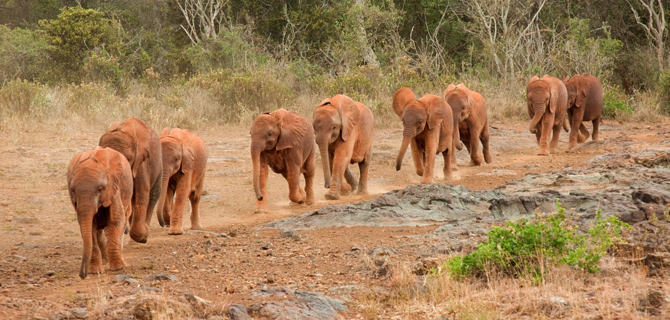It’s no secret that the travel industry has a huge impact on our environment. From the carbon footprint of flights and transportation to environmental degradation in host destinations, it falls to the hands of travel companies and travelers alike to make informed, earth-conscious decisions about how to travel well.
We believe that when conducted in the right ways, travel can be leveraged for good! Travel can promote cultural preservation and social inclusion, can contribute to local economies, and can preserve vital ecosystems and support biodiversity conservation.

In honor of Earth Week 2018, we’re sharing 5 ways in which we make travel better for our planet:
Combatting carbon
According to Sustainable Travel International, travel and tourism contribute “5% of all global carbon emissions,” making it a significant contributor to climate change.
To help mitigate this major issue, Elevate Destinations partners with Sustainable Travel International to offset the carbon footprint of every domestic flight our travelers take each year. Our annual monetary contribution, equivalent to the carbon footprint of our clients’ domestic flights, supports vital carbon reduction projects around the world.

These fully vetted programs pioneer reforestation projects, ecosystem restoration, renewable energy initiatives, and more, not only balancing out our carbon footprint but also positively impacting other important factors like biodiversity conservation and local livelihoods for communities in rural regions.
Our collective impact with Sustainable Travel International and other eco-conscious travel companies who have elected to offset their client’s carbon footprints has resulted in 175,368-metric tons of carbon offsetting. This amount is equivalent to 25,896 homes turning off their electricity for 1-year and 19,733,093 gallons of gasoline not consumed (source: Sustainable Travel International).

Supporting local business
Many internationally held tourism operations do not support local economies fairly. Every member of our team has a background in sustainability and approaches the potential economic benefit of tourism in host destinations with a keen eye.
As much as possible, we support locally owned and operated businesses that feed back into the local economy, and give travelers a more authentic experience.
Increasing local stakeholders in tourism reallocates decision-making power to the hands of people who are most affected by tourism. By participating in tourism development, local entrepreneurs and employees have a far greater incentive to preserve and protect the natural and cultural capital that attracts travelers.

Democratizing tourism
Unfortunately, travel is inaccessible to a large portion of the world’s population – individuals who reside in tourism destinations being most affected by the lack of opportunity to engage in touristic activities, even in their home countries.
It is our firm belief that everyone should have the opportunity to benefit from travel. People should be able to connect with their ancestral roots to promote a strong sense of cultural identity and to relish in their country’s extraordinary natural spaces and wild animals. For this reason, we launched our innovative and industry-changing Buy a Trip, Give a Trip program.

Each year we dedicate a portion of our profit to operating culturally and environmentally significant day-trips for under-represented youths to visit important tourism destinations in their home countries. We have had young South Africans visit Robben Island to learn more about Nelson Mandela’s legacy, we have had young environmentalists join a naturalist guide to participate in a recycling project on the beaches of Jaco, Costa Rica and to explore the canopies of the cloud forest, and we have had a group of Sri Lankan school boys see wild elephants for the first time.
Buy a Trip, Give a Trip is the first initiative of its kind, leading the industry towards a more equitable future. After being recognized for a major industry award in 2016, other like-minded travel companies took notice, prompting us to launch the One for One Travel Alliance. The Alliance serves as a collective of visionary travel industry leaders who share our mission of democratizing tourism.

Every traveler who chooses to take a trip with an Alliance member is directly contributing to the democratization of travel. With the collective efforts of alliance members, we have been able to give the gift of travel to well over 1,000 youths around the world.
Protecting our planet’s flora and fauna
Elevate Destinations is highly selective when it comes to our accommodation and nonprofit partners.
We recognize that by working with the best conservation-focused organizations on the ground, we are helping to conserve vast tracts of land, empowering companies with robust environmental sustainability models, and supporting nonprofit organizations with proven track records of success.

Partners like Grootbos, a luxury eco-lodge in South Africa’s scenic garden route have launched innovative efforts to preserve the fragile and endemic fynbos floral kingdom, have helped numerous local women learn sustainable urban agriculture methods, and have supported thousands of students in the region.
The David Sheldrick Wildlife Trust in Kenya has been vital in protecting elephants and rhino since its inception, combating poaching and educating and empowering tourists to contribute to conservation. Furthermore, Yacutinga Lodge in Argentina’s Misiones Rainforest acts as a wildlife corridor, providing a safe haven for numerous endangered mammal and bird species.

Whether our ground partners are finding innovative ways to deal with waste, are dedicated to biodiversity conservation, or are supporting local communities through robust education efforts, you can be sure that the cost of your trip is supporting impactful grassroots initiatives that are making a real difference around the world.
From the vast plains of Tanzania, to Vietnam’s emerald rice paddies and the rainforests of Peru you can count on our team of experts to approach travel consciously, considering the impacts (both positive and negative!) of our presence in wild areas and local communities, and empowering you to make informed decisions that contribute to long-term sustainability.

